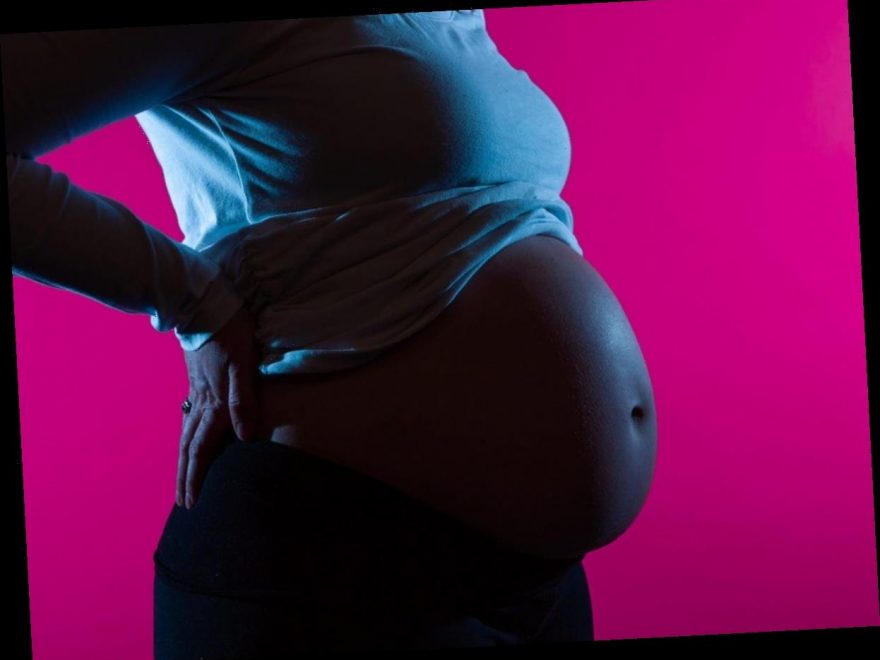- Many undocumented immigrants, including pregnant women, are afraid to seek medical care or emergency Medicaid because of the public charge rule, which means accepting any public funds could impact their immigration application.
- Healthcare facilities that work with undocumented mothers aim to reduce barriers to care by making locations convenient and offering translation services.
- Visit Insider's homepage for more stories.
Most expecting mothers write down their prenatal appointments months in advance and fall into a rhythm of visiting their doctor or midwife regularly during their pregnancy. But for undocumented women, getting prenatal care can feel like a risk, rather than a reassurance.
"Many women are afraid to get care," Veronica M. Alvarez-Galiana, MD, medical director of OB/GYN services at Community Health of South Florida, Inc. told Insider.
These concerns became more pronounced after the Trump administration enacted the public charge rule, which says that accepting any public funds — including for things like insurance — could jeopardize a person's immigration status or application, even if that person is legally entitled to the funds. A federal appeals court recently ruled against the public charge policy this week, but it's unclear how that will affect its use.
Regardless, the policy has had a big impact on the willingness of undocumented immigrants, including pregnant women, to access health care. After the rule was enacted in 2019, many healthcare providers who work with immigrant mothers who are undocumented saw women withdraw from care. The New York Times reported that many doctors saw women miss prenatal appointments, while midwives experienced an increase in requests for home births from undocumented mothers.
Alvarez-Galiana has seen this in her practice, too.
"In general, undocumented women are at increased risk because they are less likely to get prenatal care during pregnancy, or they are more likely to show up late for prenatal care," she said.
Alvarez-Galiana says that many people live in fear of losing a chance at legal status in the United States. Although undocumented immigrants aren't eligible for Medicaid or other public insurance programs, in some cases pregnant women can access the programs temporarily.
"The good thing for these women is that the rule does not apply to emergency or temporary Medicaid at all," she said. "But unfortunately, this fear has proved a serious barrier to seeking care with many undocumented women not wanting to get any health care at all as a result."
Even for women who utilize the health care programs that are available to them, there are plenty of other barriers. For example, the emergency Medicaid doesn't cover the full cost of prenatal care. In addition, "there are often issues in terms of transportation, language barriers, and the fear of deportation that makes them resistant to pursue the care they and their children need," Alvarez-Galiana said.
Care providers that work with many undocumented women, like Community Health of Southern Florida, try to break down some of the barriers to service. They establish clinics close to the places where undocumented immigrants live, and offer translation services for a range of Spanish dialects and other languages, Alvarez-Galiana said.
In Texas, many health services rely on promotoras, people with established trust in immigrant communities, who can help persuade women to get care.
Missing prenatal care can mean that conditions like gestational diabetes or preeclampsia go undiagnosed, putting both mother and baby at risk, Alvarez-Galiana said.
"Apart from the main issue of presenting late prenatal care, or not getting any prenatal care at all, these women often also face challenges we may not be fully aware of," she says. "For example, many of undocumented women may suffer from food insecurity and other issues related to poverty that can affect health."
Taking care of pregnant undocumented women is a way of taking care of the next generation of Americans, Alvarez-Galiana said.
"Taking care of everyone in this country is going to improve the nation's overall health," she said. "Let's remember that these pregnant undocumented women are set to give birth to U.S. citizens."
Source: Read Full Article
